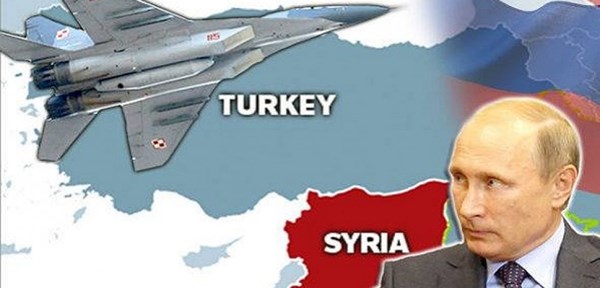Return of Crimea and destabilisation of Caucasus could be Turkish response to Russia
Ukrainian political scientist and Director of the Institute of Global Strategies, Vadim Karasev, believes that during the friction with Russia, Turkey could raise the issue of the return of the Crimea to Ukraine on the international level. Moreover, Turkey could also support subversive underground movements in the Caucasus.
“The Russo-Turkish confrontation has mostly taken place on the information level. The conflict has hybrid nature,” Karasev stated. The expert believes that the conflict between Russia and Turkey will continue to escalate, which will contribute to the cooling of diplomatic relations, the suspension of trade relations, the activation of propagandistic efforts, and the strengthening of intelligence and subversive activities by both sides.
According to Karasev, Russia and Turkey fight for influence in the Middle East. “They fight for influence in Syria, Iraq and Kurdistan, the territories of which are in these countries as well as in Turkey. Russia will rely on the Kurds, which has historically been a painful issue for the Turks. Thanks to Russia’s neutrality during the Kurdish conflict in 1990, Turkey was able to contain the uprising.
He suggests that Russia will try to use the Kurdish issue in order to undermine Turkish statehood.
“Turkey will not take a defensive position, but will take countermeasures. Ukraine can become a beneficiary in the conflict between Russia and Turkey; the issue of the return of Crimea can gain a second wind, as the West started to pay less attention to the Crimean issue in order to partially restore relations with the Russian Federation. Turkey isn’t only a member of the NATO but it has the status of candidate member state of the European Union. It can attribute public status to the Crimean issue on the international agenda,” says the Ukrainian political scientist.
“The council of representative of the Crimean Tatars, the Mejlis , receives implicit support from Turkish politicians, which could grow thanks to the conflict with Moscow. I don’t think that the de-occupation of Crimea will become the main issue, but it will be a constituent part of the Turkish response to Russia,” he added.
“Azerbaijan was considered to be one of the key allies of Turkey in Middle and Central Asia for the creation of the so-called greater Turkey, together with Uzbeks, Kazakhs and Kyrgyz in 1990. All of these nationalities are kindred, Turkic-speaking peoples, unlike Tajiks, who are closer to Persians. Ankara can now strengthen its strategic partnership with Baku. Earlier, Azerbaijan was one of the key elements in the confrontation between Turkey and Iran,” the expert said.
According to his forecasts, the Russo-Turkish conflict could contribute to the destabilization of the Caucasus. “Turkey can strengthen the confrontation between Azerbaijan and Armenia, and renew the Nagorno-Karabakh conflict, negotiations on the resolution of which took place in Minsk. Such an outcome has a high probability. Now, Russia undertakes significant efforts in order for Azerbaijan to maintained a neutral position,” Karasev said.
According to him, the Kremlin is aware of the consequences of the escalation of the conflict with Ankara. That is why the Russian President in his annual address didn’t mention any potential countermeasures which could be aimed at Turkey. The crisis in the relations between Turkey and Russia came after an incident in which a Russian Su-24 frontline bomber was shot down by a Turkish F-16 fighter on November 24th over the border between Syria and Turkey.
On November 28th, Vladimir Putin signed a resolution imposing economic sanctions on Turkey. In response, Ankara declared that it was searching for alternatives to Russian gas, and stated that it would look to Iran and Azerbaijan for potential export markets.
On December 3rd, during a joint press conference, the Prime Minister of Turkey, Ahmet Davutoğlu and the President of Azerbaijan, Ilham Aliyev, stated that Turkey and Azerbaijan will accelerate the construction of the Trans-Anatolian pipeline.
